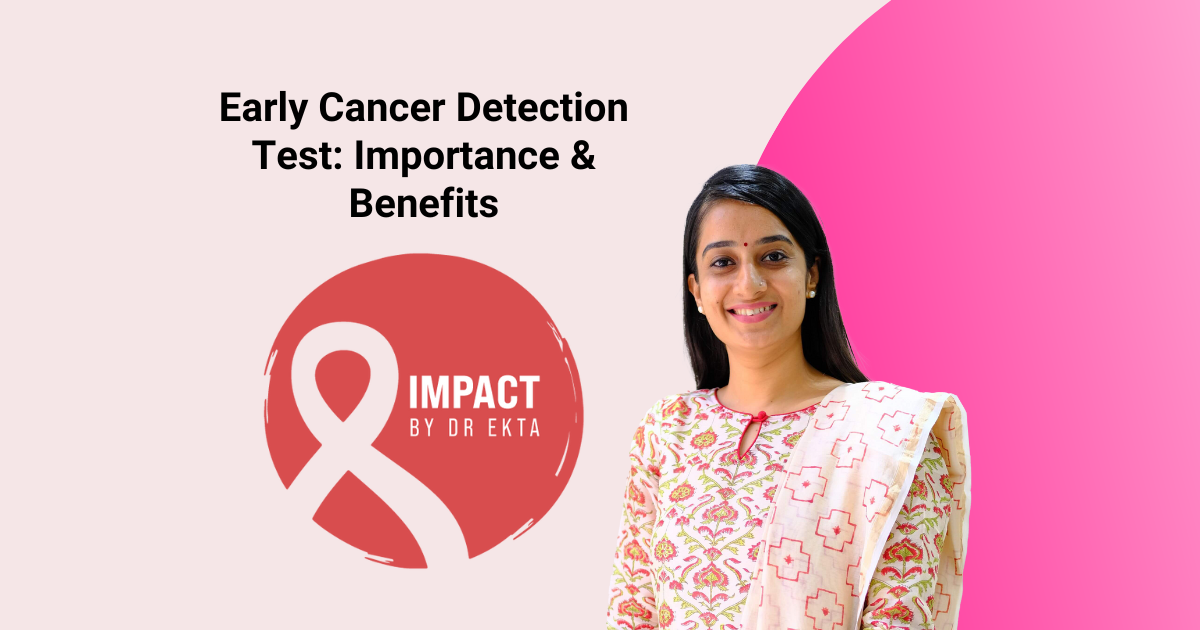Detecting cancer at its earliest stage can significantly increase the chances of successful treatment and survival. An early cancer detection test plays a crucial role in identifying abnormalities before symptoms even appear, providing an opportunity for timely medical intervention. This blog explores the importance and benefits of early cancer detection, the types of tests available, who should consider screening, and how these tests can change outcomes.
Why Early Cancer Detection Matters
Cancer becomes more difficult to treat as it progresses. That is why early cancer detection can make a significant difference in patient outcomes. Early detection tests can:
- Identify cancer in its early stages, sometimes even before symptoms begin
- Enable less aggressive treatment options with fewer side effects
- Increase survival rates and long-term health outcomes
- Reduce overall healthcare costs by preventing advanced disease
- Provide peace of mind for patients at higher risk
Common Early Cancer Detection Tests
Several screening tests are designed to catch different types of cancer in their early stages. Depending on age, gender, family history, and risk factors, your healthcare provider may recommend one or more of the following:
- Mammography: Detects breast cancer in women, especially those over 40
- Pap Test and HPV Test: Screens for cervical cancer in women
- Colonoscopy and FIT Test: Detects colorectal cancer, usually starting at age 45
- Low-Dose CT Scan: Recommended for people at high risk for lung cancer, such as heavy smokers
- PSA Test: Measures prostate-specific antigen levels to help detect prostate cancer in men
- Skin Exams: Visual inspection for signs of skin cancer, especially for individuals with many moles or high sun exposure
Who Should Consider Early Cancer Detection?
While some tests are recommended for the general population at a certain age, others are targeted toward individuals with specific risk factors. People who may benefit from early cancer detection tests include:
- Adults over 40, depending on gender and family history
- Individuals with a family history of cancer
- People with genetic predispositions like BRCA mutations
- Those exposed to harmful substances (e.g., asbestos, tobacco, radiation)
- Individuals with chronic health conditions like inflammatory bowel disease
Your doctor can help assess your risk and create a personalized screening plan.
Benefits of Early Cancer Detection
The benefits of undergoing an early cancer detection test go far beyond peace of mind. Detecting cancer early can:
- Lead to more treatment options that are less invasive
- Improve chances of a complete cure or remission
- Minimize physical and emotional burden from advanced-stage treatments
- Allow patients to maintain a better quality of life
- Enable quicker recovery and return to normal activities
- Help families plan and make informed healthcare decisions
Challenges and Limitations
Despite the advantages, early detection tests also come with challenges:
- False Positives: May lead to unnecessary worry or additional procedures
- False Negatives: Can delay diagnosis if results are not accurate
- Overdiagnosis: Detecting cancers that may never become life-threatening can lead to overtreatment
- Access and Awareness: Not all communities have equal access to cancer screening
However, with advancements in medical technology and government-backed screening programs, these challenges are gradually being addressed.
Government Recommendations and Resources
Government health agencies and cancer organizations regularly update their guidelines to ensure evidence-based screening practices.
The Role of Technology in Early Detection
The field of early cancer detection is rapidly evolving with the help of advanced diagnostics and artificial intelligence. Some of the latest developments include:
- Liquid Biopsies: Detect cancer DNA in the blood with a simple blood draw
- AI in Imaging: Improves accuracy in mammograms, CT scans, and MRIs
- Genetic Testing: Helps identify high-risk individuals before symptoms develop
- Telehealth Screenings: Allow initial assessments and risk evaluations remotely
These innovations are expected to make early detection even more precise, accessible, and efficient.
Taking the First Step
If you’re unsure about whether you need an early cancer detection test, start by:
- Consulting your primary care physician or oncologist
- Reviewing your family history for known cancers
- Discussing any concerning symptoms or lifestyle risks
- Keeping up with routine health checks and annual exams
- Staying informed about new tests and technologies
Final Thoughts: Prioritize Prevention
An early cancer detection test can be life-saving. It empowers individuals to take charge of their health and act before it’s too late. Whether you’re in a high-risk group or simply want peace of mind, talk to your doctor about which screening options are right for you.
At Medisquare Superspeciality Hospital, we offer advanced cancer screening and early detection programs tailored to your needs. Book a consultation with our specialists or call 8866843843 to learn more about your options today.

